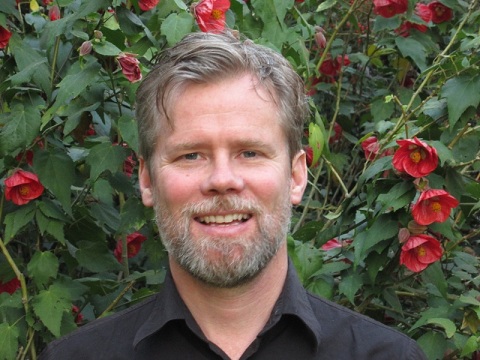On Shareable's first full day live — one week ago! — Mark Pesce gave a speech in Australia that could have been published on this site:
This is the era of sharing. When the histories of our time are written a hundred years from now, sharing is the salient feature which historians will focus upon. The entirety of culture, from 1999 forward, looks like a gigantic orgy of sharing.
His best example is Wikipedia:
If we peel away all of the technology behind Wikipedia, all of the servers and databases and broadband connections of the world’s sixth most popular website, what are we left with? Only this: an agreement to share what we know. It’s that agreement, and not the servers or databases or bandwidth which makes Wikipedia special, and it’s that agreement historians will be writing about in a hundred years. That agreement will endure – even if, for some bizarre reason, Wikipedia should cease to exist – because that agreement is one of the engines driving our culture forward.
We couldn't agree more! Mark is a legend in Silicon Valley, where I live, for his role in developing VRML (Virtual Reality Modeling Language) and for his speculations about how technology is changing society.
In this talk for Australian educators, Mark is articulating a foundational idea at Shareable, that sharing will fundamentally re-order our society – from identity to organizational structure to markets to government – and that society will be remade in the image of a network that enables people to share:
Sharing is wonderful, but sharing has consequences. We can now amplify and accelerate our sharing so that it can cross the world in a matter of moments, copied and replicated all the way. The power of the network has driven us into a new era. Sharing culture, knowledge, and power has destabilized all of our institutions. Businesses totter and collapse; universities change their practices; governments create task forces to get in front of what everyone calls ‘something-2.0’. It could be web2.0, education2.0, or government2.0. It doesn’t matter. What does matter is that something big is happening, and it’s all driven by our ability to share.
I may have one point of difference with Mark, his suggestion that this shift is for the virtual world rather than the material one. I think sharing online will pave the way for sharing real stuff offline. Granted, that's seems like a big leap in logic because sharing online is dramatically easier than sharing offline. However, there are converging cultural, technological, environmental, and economic trends that could bring sharing real stuff into the mainstream.
In any case, we're in for a mind-opening treat if this essay is a warm up for his upcoming book The Human Network: Sharing, Knowledge and Power in the 21st Century. Check here for a similar speech given at the Personal Democracy Forum in July.
(Thanks go to David Hodgson for sharing this affirming link with me.)








